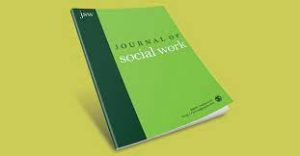This paper delves into various theories of counseling, with a focus on personality theories and their implications for the field of counseling. It discusses the relevance of these theories to a counseling career, explores a selected theory in depth, and examines how the knowledge gained from these theories can be applied in practical counseling settings.
Theories of Counseling: Exploring Personality Theories and Their Relevance to Counseling Practice

Counseling theories form the bedrock of effective therapeutic practices, guiding counselors in understanding the complexities of human behavior, emotions, and motivations. Personality theories, in particular, provide valuable insights into the intricate workings of clients’ minds. This paper explores the significance of personality theories in counseling, their practical applications in various settings, and their role in shaping counseling practices.
Theories of Counseling; Personality Theories and Their Significance:
A rich tapestry of personality theories exists, each offering unique lenses to understand human nature. Psychodynamic theories, such as those by Sigmund Freud, delve into the unconscious mind, revealing hidden motivations and unresolved conflicts. Humanistic theories, exemplified by Abraham Maslow’s hierarchy of needs, emphasize self-actualization and personal growth. Behavioral theories center on learned behaviors and conditioning, while cognitive theories delve into thought processes and cognitive restructuring. By unraveling the complexities of individual personalities, these theories enable counselors to tailor interventions to suit each client’s unique needs.
The ability to distinguish the underlying causes of thoughts, emotions, and behaviors is critical to effective counseling. Personality theories illuminate the intricate interplay between clients’ past experiences, present challenges, and future aspirations, providing counselors with a roadmap for guiding clients toward positive change.
Theories of Counseling; Relevance of Counseling Theories to the Counseling Career
Counseling theories are not merely academic exercises; they serve as practical blueprints for therapeutic interventions. Whether working in schools, clinics, or private practices, counselors encounter diverse clients with distinct backgrounds and needs. By integrating counseling theories into their practice, counselors gain a versatile toolkit for addressing various concerns. For instance, a counselor working with adolescents may draw upon Erik Erikson’s psychosocial stages to comprehend identity formation and assist clients in navigating the challenges of adolescence.
Nevertheless, applying counseling theories demands a nuanced approach considering ethical considerations and cultural sensitivity. Cultural, societal, and personal factors uniquely shape each client. Hence, the responsible counselor adapts theoretical frameworks while remaining attuned to the client’s cultural background and values, ensuring interventions are respectful, relevant, and effective.
Selected Theory: Alfred Adler & Karen Horney:
Among the pantheon of personality theorists, Alfred Adler and Karen Horney stand out for their innovative perspectives. Adler’s Individual Psychology posits that social connections and belonging are paramount to mental well-being. Horney’s psychoanalytic theory emphasizes the influence of childhood experiences on adult behaviors, shedding light on the roots of neuroses and coping mechanisms. By delving into these theories, counselors gain insights into clients’ struggles with feelings of inferiority, anxiety, and interpersonal challenges. Strategies derived from Adler and Horney can empower clients to build stronger social connections and overcome self-limiting beliefs.
{Theories of Counseling} Selected Theory: Erik Erikson:
Erikson’s psychosocial theory introduces a developmental framework encompassing eight stages, each marked by a unique psychosocial crisis. This theory resonates deeply in counseling, providing a roadmap to understanding clients’ struggles, transitions, and personal growth. For instance, a counselor working with a middle-aged client may utilize Erikson’s generativity versus stagnation stage to explore the client’s desire to contribute to society and leave a lasting legacy. Counselors can facilitate meaningful change and personal evolution by aligning counseling strategies with clients’ developmental challenges.
Selected Theory: Sigmund Freud:
Sigmund Freud’s psychoanalytic theory remains a cornerstone of modern psychology and counseling. The id, ego, and superego construct offer a lens through which to comprehend clients’ internal conflicts, while the stages of psychosexual development shed light on the formation of personality traits and coping mechanisms. Even though Freud’s theories have evolved, elements such as the unconscious mind, defense mechanisms, and the therapeutic value of introspection continue to inform contemporary counseling practices.
Theories of Counseling: Personal Resonance:
Reflecting on the presented theories, one theory that resonates profoundly is Erik Erikson’s psychosocial theory. Erikson’s emphasis on the interplay between individual growth and social interactions aligns with a belief in the transformative power of healthy relationships. This theory resonates with my counseling philosophy of fostering authentic connections to catalyze personal development.
Theories of Counseling: Application of Knowledge Gained from Theories:
The practical application of counseling theories is the crucible in which transformative change occurs. By understanding clients’ personality dynamics and developmental stages, counselors can craft tailored interventions that resonate with clients’ unique experiences. For instance, a counselor employing cognitive-behavioral techniques can draw from Aaron Beck’s cognitive theory to restructure negative thought patterns. Nevertheless, challenges arise in translating theoretical concepts into actionable strategies. Clients may not neatly fit into theoretical molds, and real-world complexities demand flexibility and creativity in adapting interventions.
Conclusion to Theories of Counseling
Theories of counseling, especially personality theories, offer invaluable insights into the complexities of human behavior and emotions. As counselors navigate the diverse landscapes of clients’ lives, these theories provide compasses for understanding and guiding the therapeutic journey. By embracing the wisdom of counseling theories and integrating them into practice with sensitivity and flexibility, counselors empower clients to transcend challenges and embark on paths of healing and growth. As the counseling landscape evolves, the commitment to ongoing learning and adaptation remains pivotal in providing effective and meaningful therapeutic interventions.
References to Theories of Counseling
Cherry, K. (2023). What is Attachment Theory? [online] Verywell Mind. Available at: https://www.verywellmind.com/what-is-attachment-theory-2795337.
Traylor, J., Overstreet, L. and Lang, D. (2022). Psychodynamic Theory: Freud. iastate.pressbooks.pub. [online] Available at: https://iastate.pressbooks.pub/individualfamilydevelopment/chapter/freuds-psychodynamic-theory/.





